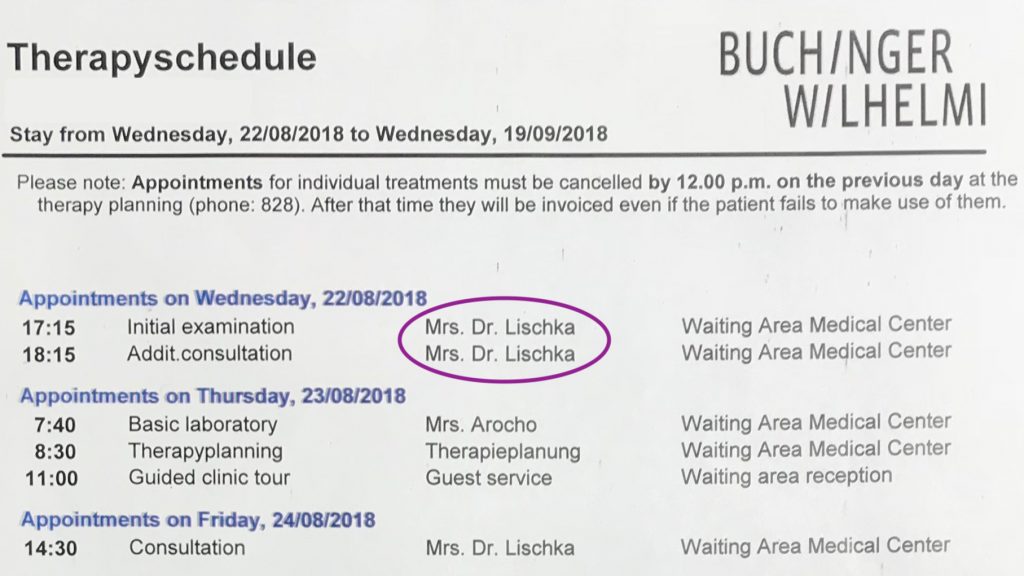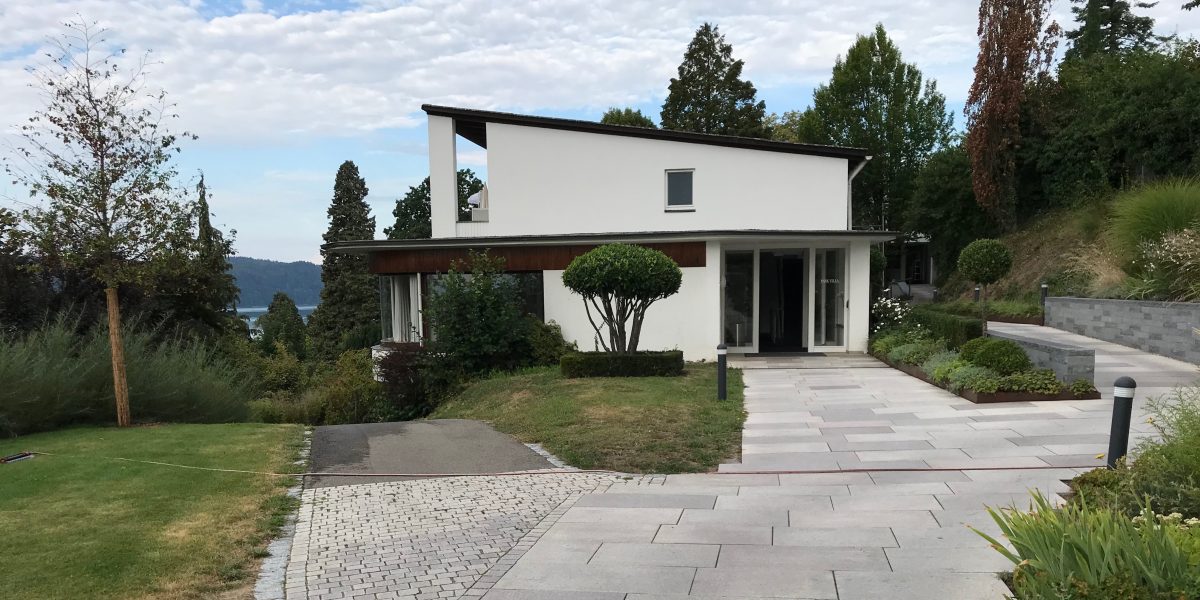The adventure begins! Today was “arrival day” at Buchinger-Wilhelmi.
Overall, the 100 years of experience here shows in their execution. The staff here is well-versed at dealing with travelers from abroad. Once arriving in Zurich, I was welcomed with a friendly phone call from a fluent English speaker who told us where our driver was waiting. We were driven in a Mercedes E-class sedan to the clinic, where we were then greeted by name, escorted to our rooms, and given a brief introduction to the set of materials we were to then receive, including handouts, newsletters, books, and an iPad with a proprietary “fasting coach” app featuring their own video content! There’s a lot of homework involved here in fasting!
I am going to apologize in advance for not taking as many photos as I’d like to here. The clinic has a rule against use of mobile phones outside of our rooms, and we signed a little contract agreeing to these terms! They do provide Wi-Fi in our rooms but discourage Web surfing, streaming media (outside their own!), and other distractions to keep us from being present in the moment of fasting. That said, reading, writing, and other creative endeavors are encouraged during this time.
My wife and I have adjacent rooms in the Park Villa, overlooking the Bodensee. The rooms are very sparse but clean. Like a hospital, each room has nurse “call” buttons both at bedside and in the bathroom. During the day, we have a nurse in our building, and after that, there is a night nurse on call. (Update: at 4am Thursday morning while half asleep, I accidentally pressed the “call” button while looking for a light switch in the bathroom. My phone rang immediately! That really woke me up!)

We also had our first appointments with our doctor, Dr. Lischke, who made a very good first impression! I found it odd that the clinic specifies gender in their therapy schedules, as my handout referred to her as “Mrs. Dr. Lischke.” Perhaps this is more appropriate for a very international audience.

For our first day here, we got to eat full vegetarian meals for both lunch and dinner. The food here is excellent! To me, it’s ironic that a fasting retreat has gourmet cuisine, but the doctrine here is as much about having a healthy lifestyle after the clinic to fully realize the benefits of fasting! In addition, we were told that the first day of food is really to ensure that, after the weariness of travel, we’d have full strength to begin the process of fasting.
In the dining room, we have assigned seating. We were situated at a table for four people, but we did not see the other two people at our table today. Perhaps they are already fasting! Still, there were many people there either before their fasts, after their fasts, or, in some cases, enjoying the “calorie restriction” program here as an alternative to fasting.
On the way to the dining room, we pass the “salon” where the people who are fasting congregate during mealtimes to consume their vegetable broths. I’ll be documenting what that’s like in a couple days! Our first day of fasting will be Friday!
Tomorrow, we’ll be our “digestive rest day.”

I found your site while I was searching for info about the B-W clinic. I’ve been watching their extensive YouTube channel’s output this week and I have been wondering about some of the particulars from the patients’ perspective, so I am very interested to keep reading about your long stay! Just commenting under this article to say that putting the “Mrs.” before “Dr.” is just the traditional German way of addressing female doctors in the German language — it’s not written that way so that foreign visitors (people from other countries who are visiting Germany) can know which doctor is male and which is female. I studied German in high school and college and lived there for a couple of years in my 20s, and that was just the way women doctors were addressed.
Maybe they have relaxed on this in the last 25 years (it’s been that long since I lived there), but probably the older generations still adhere to formal protocols on titles.
I seem to recall that they could add more than the 2 titles, depending on the person’s academic qualifications, occupation, political office, religious position, etc., and you had to know in which order all the person’s applicable titles were to be spoken/written.
[In Austria, apparently there is a law about how people should refer to themselves on their own business cards, and if you even simply have a master’s degree (which in most countries isn’t something that nets you a special formal title), in Austria you are legally required to list it with your name on your business card (I think the word is “Magister”; I’m not sure now if it’s put before or after the name) — I learned this when I got a master’s in the UK, but that was also 20 years ago.]
Also, “Frau” used to be just for addressing married women (so you had to know if the woman was married or not when addressing her), and “Fraulein” was used for unmarried women, but I think that, these days, most women over 18 or so are called “Frau” by everyone, whether they are married or not – though maybe that’s not loosened up in all places that speak German.